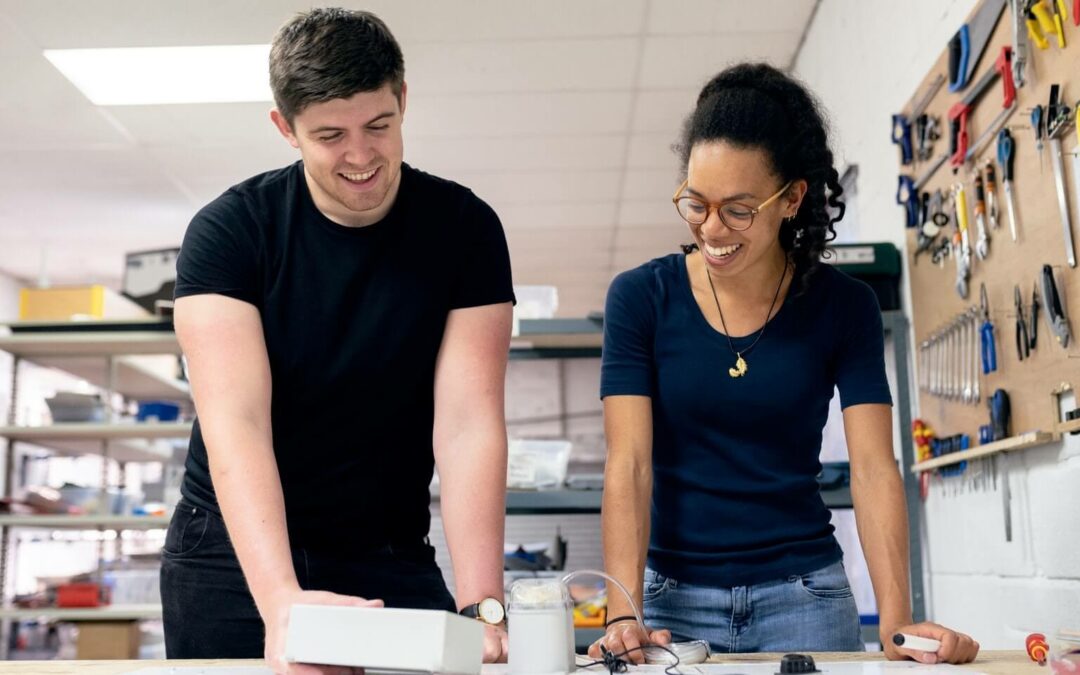As we wrote about previously, standards and the certifications based on those standards can help employers identify and close their skills gaps. A “standard” documents critical skills and competencies an employee needs to perform a specific job. Many manufacturing and skilled trade roles have associated standards, and employers rely on these defined skills to make sure their workforces have the right skills for success.
Industry standards play an essential role in shaping the future of work. Participating in the standard development process could be a way to help you establish your organization as a trusted industry resource, better align with emerging skills, and improve product quality. Let’s take a closer look at how this works.
Who Develops Standards & How Do They Shape Future Skills?
According to the International Organization for Standardization (ISO), it takes many independent technical experts to create a standard. As technology advances, industry standards are updated, and in some cases, new standards are developed.
David Miller from Automation World’s podcast “Take Five” noted we’re seeing a “proliferation” of new standards for emerging technologies like automation and additive manufacturing. This is because many new technologies are reaching the same stage in the standards life cycle.
Standards are often slow to develop when new technologies are first being developed because these products are often propriety or experimental. Once the technology matures and is more widely adopted, customers want an established standard so it’s easier to incorporate the technology into their processes or migrate from one product or system to another.
A white paper on the industrial internet of things (IIot) standards from the Industrial Internet Consortium (IIC) outlines the typical life cycle of a standard and the different kinds of organizations involved along the way.
Standards Development Life Cycle
Life Cycle Stage |
Organization Type |
Role |
| Idea / Demand | Industry Consortia (ex. The Smart Manufacturing Institute) |
Establish Requirements |
| Innovation | Association (ex. AutomationML) |
Specification |
| Standard | Standard Development Organization (ex. ISO) |
Standardization |
| Code | Open Source Foundation (ex. Linux Foundation) |
Software Development |
| Market Readiness | Alliances (ex. Open Industry 4.0 Alliance) |
Assemble & Test |
Industry standards play a critical role in shaping future skills because they define specific competencies and processes needed to meet a minimum level of success.
What Are the Benefits of Helping Develop New Standards?
Engaging in the standards development process will require an investment of time and resources, but it does have several benefits.
Lend your expertise and establish your organization as a trusted resource. Developing industry standards is an opportunity to advance the industry as a whole by sharing your expertise and firsthand knowledge. Perhaps your organization played a key role in developing or troubleshooting a piece of advanced technology like additive manufacturing. Your experience will help ensure the standard is accurate and reflects the skills needed for success.
Quickly align skills and processes with new technology. Working with the leading experts in emerging technologies will help you prepare for future implementation. How will this new technology influence your production line? What kinds of new skills will employees need to learn? Early engagement in a standard’s lifecycle can help you answer these questions and minimize the time it takes to integrate with cutting-edge technologies.
Improve product quality and customer experience. Keeping your finger on the pulse of developing standards will also help you accelerate the learning curve for employees, reduce development and support costs, and allow you to meet customer expectations for interoperability.
How Can Manufacturers Get Involved in Standards Development?
The Industrial Internet Consortium’s white paper provides some ideas for what to do next:
- Review your organization’s use of standards and identify key areas where you can offer relevant expertise or experience.
- Become a member of an alliance, consortia, or standards committee in your industry.
- Communicate with other participants about the overall interests of the industry and how the standard can be shaped to achieve those results.
- Pilot a standard prototype to ensure it can be implemented. This is a critical part of standard development since the initial version may have unclear elements or errors that won’t be clear until you try it in the real world.
Shaping Future Skills with NBS
Nocti Business Solutions works with companies of all sizes to build competent workforces by developing standards for positions within their organizations. Utilizing those standards for the development of skills assessments, we help employers accurately measure candidates’ specific skills and knowledge. Our certification assessments are also founded on industry standards and developed by subject matter experts (SMEs) and organizations like FANUC and MSSC.
We’re always looking for SMEs to lend their time and expertise during our test revision process. This is a great opportunity to help ensure assessments stay current and accurately reflect the skills important for our future workforce. Let us know if you’d like more information on becoming an SME or if you have questions about our services.

Recent Comments